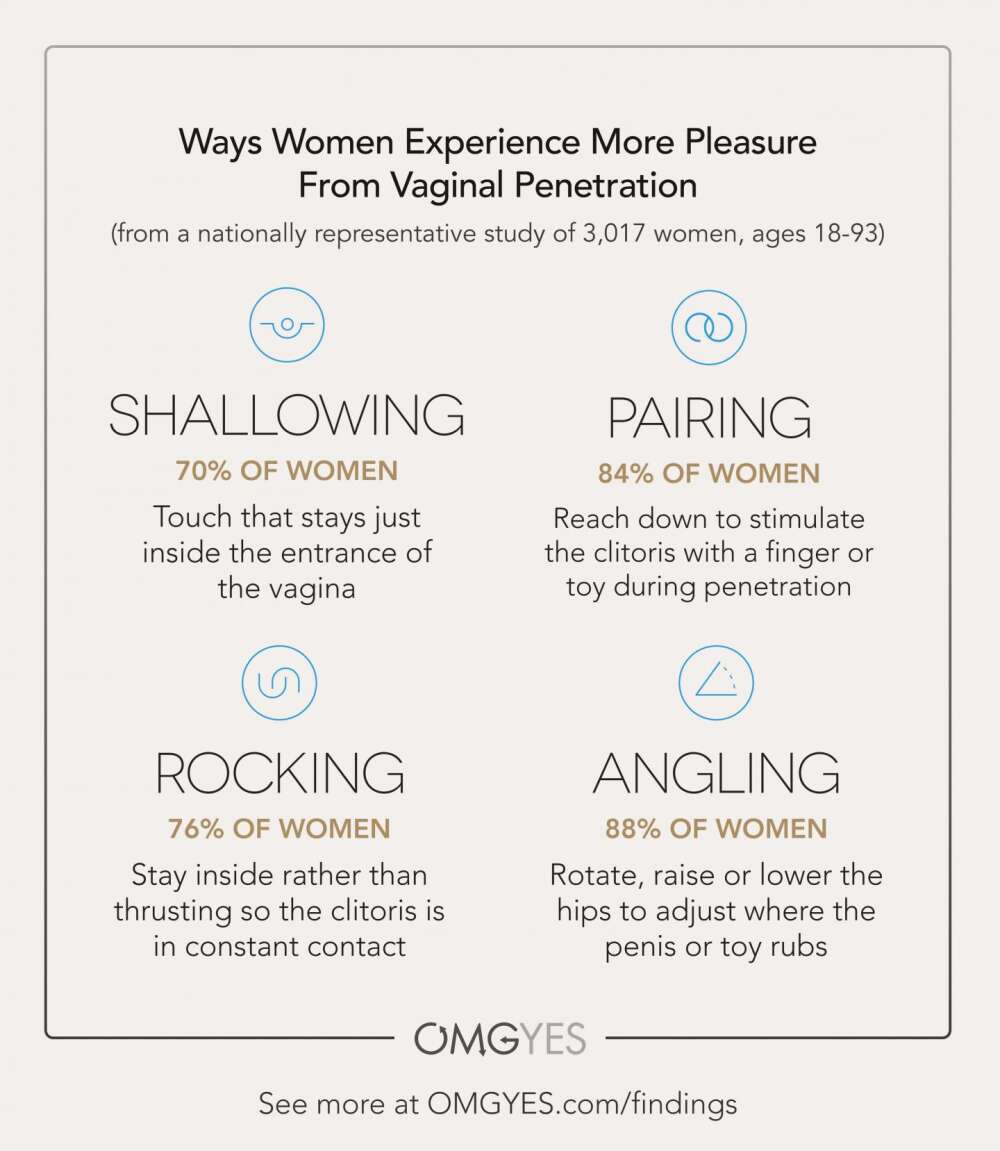Nothing makes it harder to ask for what you want than lacking the specific language to describe it. By asking thousands of women to describe what increases their pleasure during sex, and creating words for the more common answers, a team of scientists hopes to create a vocabulary of pleasure that others might recognize and apply.
Dr Devon Hensel of the University of Indiana led pilot studies of English-speaking women worldwide, asking them to describe things that gave them more pleasure during sex.
Having identified several techniques commonly used to increase sexual pleasure during vaginal penetration – whether with a penis, sex toy, or finger – Hensel gave them names. She has now conducted a 90-question survey of more than 3,000 American women aged 18 to 93 asking if they had tried and enjoyed each of them.
To ensure participants knew what was being discussed, they were shown videos made by Hensel’s colleagues – not of the acts themselves, but of other women explaining their experiences.
The most popular technique, Hensel reports in PLOS ONE, is one the team called “Angling” or adjusting the hips, with 87.5 percent of respondents saying it increased their pleasure. Three other techniques – Rocking, Shallowing, and Pairing – got at least 69.7 percent endorsement.

These represent only the most popular of an array of techniques Hensel and colleagues identify in what they call the OMGYES Pleasure Report. The PLOS paper discusses these four in detail, including the popularity of “subforms”, or more specific versions, of each.
Participants reported what they get out of each; for example, 10 percent of those who enjoyed Shallowing said it increased the likelihood of them having an orgasm, while a quarter said it made for stronger orgasms. The full report includes ratings on a four-point scale.
Scientists shouldn’t need to justify studying people’s pleasure, but Devon and co-authors do anyway by pointing to a range of benefits. Sexual pleasure, they note, is associated with greater; “Physical, social and emotional well-being…and lower levels of depression, stress and anxiety.”
Moreover, the paper notes; “Sexual pleasure research can support person-centered perspectives by assessing granularity of what makes sex enjoyable for each [woman], rather than making the assumption that the same handful of approaches work equally well for all women.”
Despite, this, most research; “Focuses on the body part or object that stimulates or penetrates the vagina,” ignoring the techniques women use themselves. Previous studies couldn’t seem to shake off a Victorian-era view of sex, in which the woman was expected to lie inertly and let things be done to her. Moreover, the limited research that has been done on women’s techniques has usually involved easy-to-access samples, such as college students, who may be unrepresentative. Hensel used a much more diverse sample.
One of the consequences of the previous neglect of pleasure research is that most women have to work out what they like by themselves, without any sort of starting menu. Another is the lack of shorthand that can be used to provide direction to partners. The paper notes it has also left many people turning to non-scientific sources, including magazines that focus on specific techniques held up as right for everyone.
This article was originally published in April 2021.
Source Link: Study Names Women's Most Popular Techniques For Pleasure And Better Orgasms